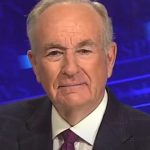Aly Song/Reuters
- Elon Musk said in a tweet Tuesday that Tesla vehicles delivered in the final three days of 2020 will receive three free months of the company’s “full self-driving” software option.
- “Delivery & docs must be fully complete by midnight Dec 31st,” Musk said.
- Tesla plans to release the driver-assistance system — which does not give the car full autonomy — as a subscription service in early 2021, and released a beta version to some Tesla owners in October.
- The company has taken heat for overstating the capabilities of the technology, and its predecessor, Autopilot, has been blamed for a spate of accidents, sometimes fatal.
- Visit Business Insider’s homepage for more stories.
Newly minted Tesla owners who receive their vehicles this week, before 2020 is over, will get a surprise holiday bonus: three free months of the company’s forthcoming “Full Self-Driving” driver-assistance system.
Tesla CEO Elon Musk announced the news in a tweet Tuesday, promising that “all Tesla cars delivered in the final three days of the year” are eligible, and adding that “delivery & docs must be fully complete by midnight Dec 31st.”
Tesla previously announced plans to release its long-awaited FSD technology, currently a $10,000 add-on, in early 2021 as a subscription service. The company released a beta version to some customers in October.
Tesla’s vehicles come standard with Autopilot, a predecessor to FSD that can brake, accelerate, and steer automatically, while FSD adds capabilities that allow vehicles to park themselves, change lanes, and recognize stop signs and traffic lights.
But neither technology gives Tesla’s vehicles full autonomy, despite some misleading claims by the company.
Read more: Elon Musk’s move to Texas is a publicity stunt that reveals how Tesla is maturing as an automaker
Following the beta release, the top US safety regulator, the National Highway Traffic Safety Administration, said that “no vehicle available for purchase today is capable of driving itself.”
Early videos of the FSD beta in use showed how far the software still has to go, with numerous recordings depicting situations where drivers had to intervene suddenly to keep vehicles from crashing or breaking traffic rules.
Autopilot has also faced criticism for what critics say is a misleading name. It has been blamed for crashes involving inattentive drivers in the past, and the NHTSA has investigated Autopilot’s role in more than a dozen traffic incidents in the past four years, some of them fatal.
Musk has made – and failed to deliver – on a series of aggressive promises around when Tesla hopes to achieve full autonomy, but the company’s software remains far ahead of competitors.
Powered by WPeMatico






